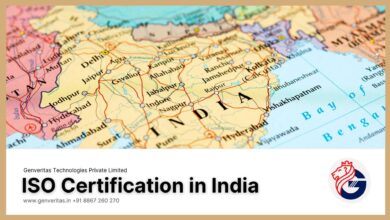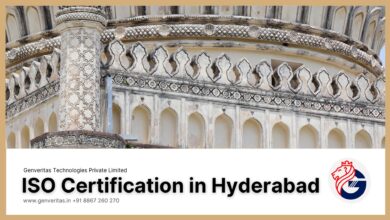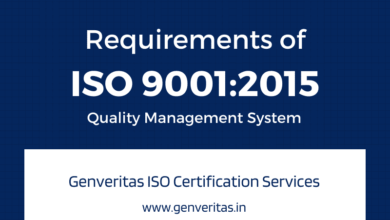How Does FSSC 22000 V6 Compare To Other Food Safety Standards?

May 26, 2023
2023-05-31 10:15
How Does FSSC 22000 V6 Compare To Other Food Safety Standards?
Food Safety System Certification 22000 is a notable scheme for those companies trying to maintain the maximum level of food safety management. It is critical to build and gain consumer trust and confidence. The version 6 of the globally-recognized FSSC scheme has been published by the authority. This current version exhibits multiple changes. It is designed to improve and enhance the scheme’s effectiveness. These changes are about to make an extensive impact on organizations in the food chain. Thus, one must stay up to about the FSSC 22000 V6 to understand how it would affect the business.
Upgrade necessity – Know the need.
- The latest version integrates the requirements of ISO 22003-1:2022, making it the comprehensive solution every organization needs.
- The current version of the FSSC scheme strengthens the vital requirements that support the organizations and their contributions toward meeting the UNs’ Sustainable Development Goals or SDGs.
- It incorporates the insightful feedback of the Version 6 development survey, taken from nearly 2,000 responses.
Distinctive features of FSSC 22000 – What makes it unique?
- The FSSC scheme consolidates the unique features essential for the Food Chain Categories in accordance with other certification frameworks like ISO 22003-1:2022.
- The scope of FSSC 22000 is expansive and includes Trading and Brokering or FII.
- The FSSC scheme exhibits the integration of the vital features of food safety and quality culture.
- The new essentialities related to quality control, food loss and waste, and equipment management are part of the scheme.
- The latest version includes additional requirements in Part 2 of the scheme. However, it is not limited to allergen management or environmental monitoring.
- The QR Code addition to the new version of FSSC 22000 has enhanced the traceability.
FSSC 22000 and ISO 22000 – Know the differences
FSSC 22000 delivers a competent certification scheme with the vital features of ISO 22000 and an extensive list of standards for enterprises.
The ISO 22000 certification framework contains lesser rigid requirements for the authority and enterprise, covering infrastructure and documentation maintenance. FSSC 22000 exhibits stricter requirements for infrastructure, covering the technical specifications of pre-industrial programs. The implementation of these requirements needs to be documented as part of the regulations of the framework. The requirements for the authority are vital for compliance, making the requirements of FSSC 22000 more rigid.
It is necessary to develop and incorporate the critical procedures for ISO 22000 and FSSC 22000. There needs to be a thorough procedure for ensuring optimal management of documents, depending on the norms of production. The procedure of certification is similar for both schemes. However, the necessities of the FSSC 22000 scheme are more comprehensive and rigid, making it a labor-intensive process.
Industries that can incorporate FSSC 22000
FSSC 22000 is suitable for various industries related to food and manufacturing. It includes –
- Food manufacturers, retailers, traders.
- Manufacturers of packaging and packaging materials, packers, distributors; and other food suppliers.
- Food transporters and distribution service providers.
- Foodservice caterers, hotels, and restaurants.
- Detergent producers, suppliers of cleaning materials and services, pest control agencies, and industrial laundry services.
- Sanitizer manufacturers, packaged water suppliers, and producers.
- Harvesters of wild plants or animals and animal feed producers.
Prime benefits of FSSC 22000 – Positive impacts of the certification
One can attain a systematic and competent strategy to identify and moderate food safety risks and hazards. The ISO-based certification model is apt for the food supply chain. FSSC 22000 is based on the ISO model. Thus, one can implement the framework with similar requirements. Read on and explore the benefits of FSSC 22000 and recognize the positive impacts of the certification –
- It enhances internal management efficiency and saves time and resources.
- Ensure continual improvement with the certification and secure a faster growth rate.
- Avoid the standard risks with the optimal management practices and reduce glitch chances.
- It enhances the food safety management system, ensuring organizational benefits.
- FSSC exhibits your commitment by offering premium quality food and food-related materials and services.
- Acquire client confidence and develop a trustworthy image with the vendors and stakeholders.
- Accelerate organizational growth with optimal risk management.
- Obtain a successful strategy to avoid and manage food hazards.
- With increased operational efficiency, expand business for a global reach.
- Earn a competitive edge and increase employee accountability with FSSC 22000.
- Reducing Risks and Hazards with FSSC 22000 – FSSC 22000 offers a restaurant an effective food safety hazard management system. It eases the needs by creating a safe product. One can enable a safe organizational environment to continuously manage, monitor, validate, and enhance the system.
- Improving Brand Reputation and Retaining Customers – Obtaining the client’s trust in your certified products helps you find loyal customers. It facilitates the process to invite new customers as well. This way, the reputation augments sharply, adding value to your restaurant.
- Expanding Market Globally – FSSC 22000 is the most popular GFSI-recognized standard across the globe. A company getting the FSSC certification offers a great for a restaurant, making it more recognized by people all over the world. In the long run, it gets easy to market the offerings and products with optimal food safety.
Industrial impacts with the new version – Experts must note
- Ensure a better scope to include Trading and Brokering (FII).
- Obtain a chance to combine food safety and quality culture norms.
- Implement improved quality control, loss, and waste management strategies.
- Get proactive with allergen management and environmental monitoring.
- Ensure better clarity with the certification process requirements.
- Modern features like the QR code on certificates validate improved traceability.
Closing note – Audit impacts with the new version
Due to changes in the accreditation document, the audit time for FSSC 22000 audits has been revised. The audit time has increased in many organizations. Many organizations need an integrated audit with enhanced management systems for food safety without reducing efficiency. Choose IRQS for an end-to-end solution related to FSSC audits and ease the professional requirements. Ensure an efficient audit session, meeting the revised norms of the FSSC 22000 audit.
Image by Freepik





